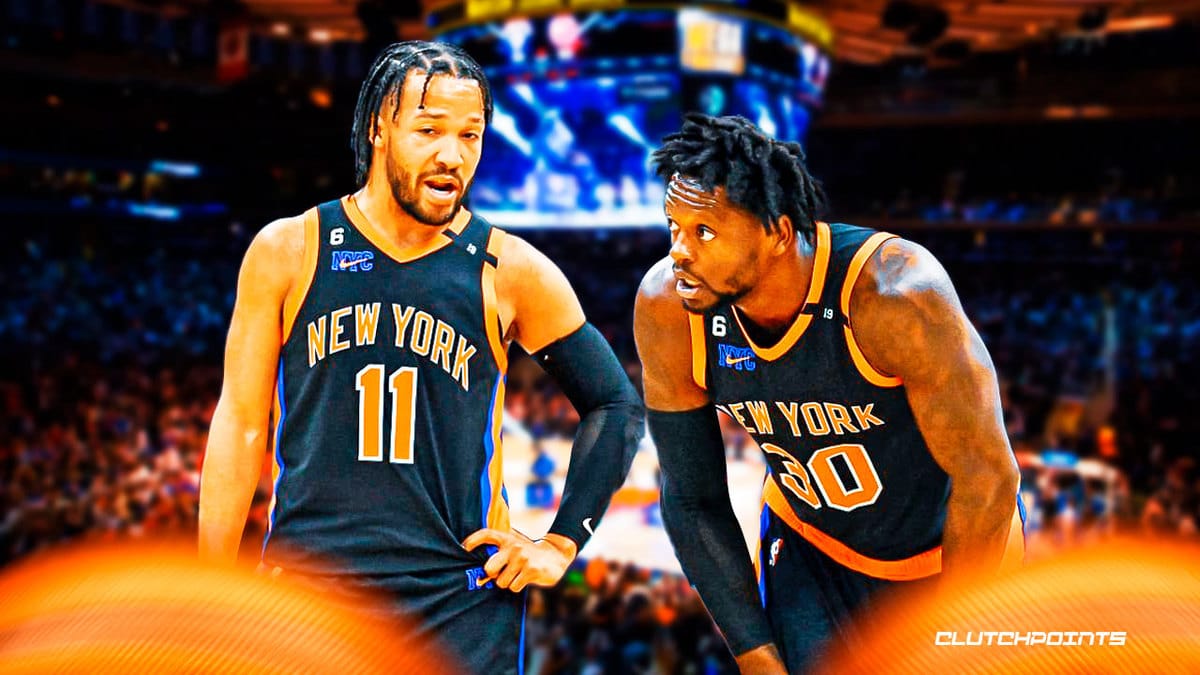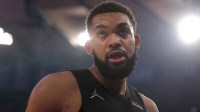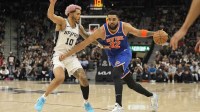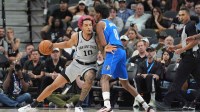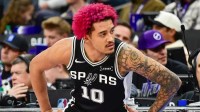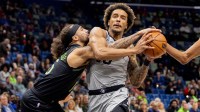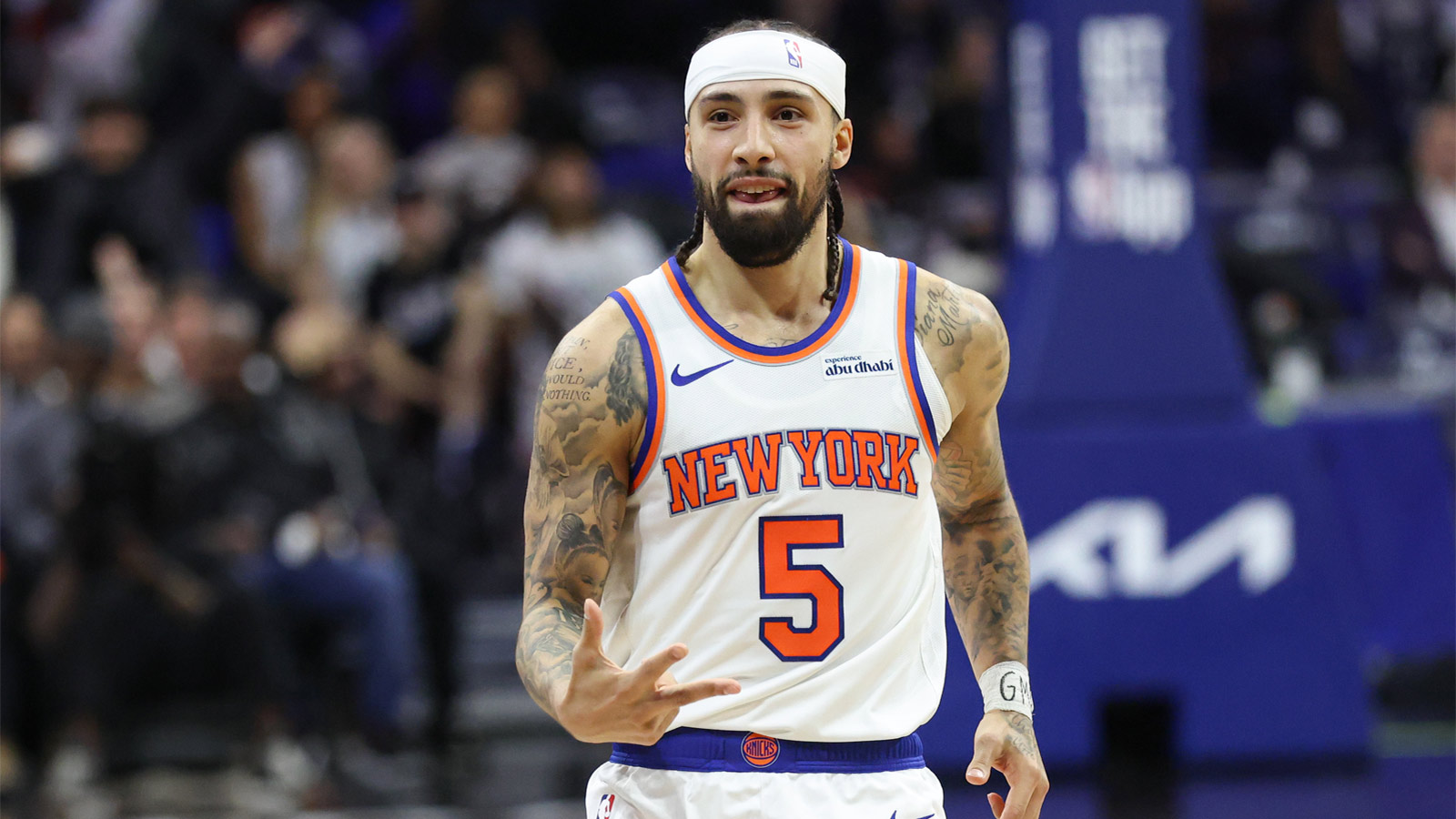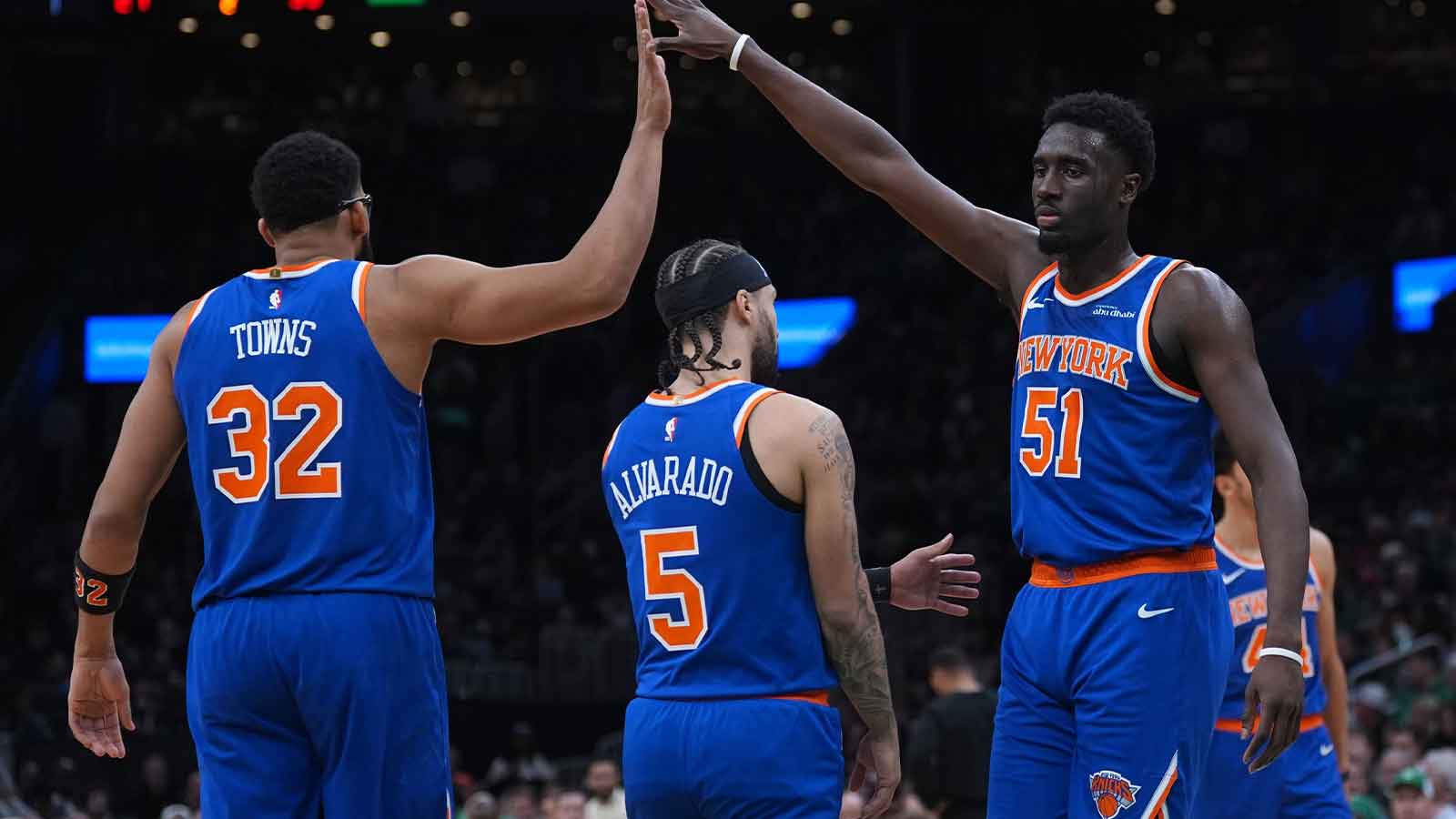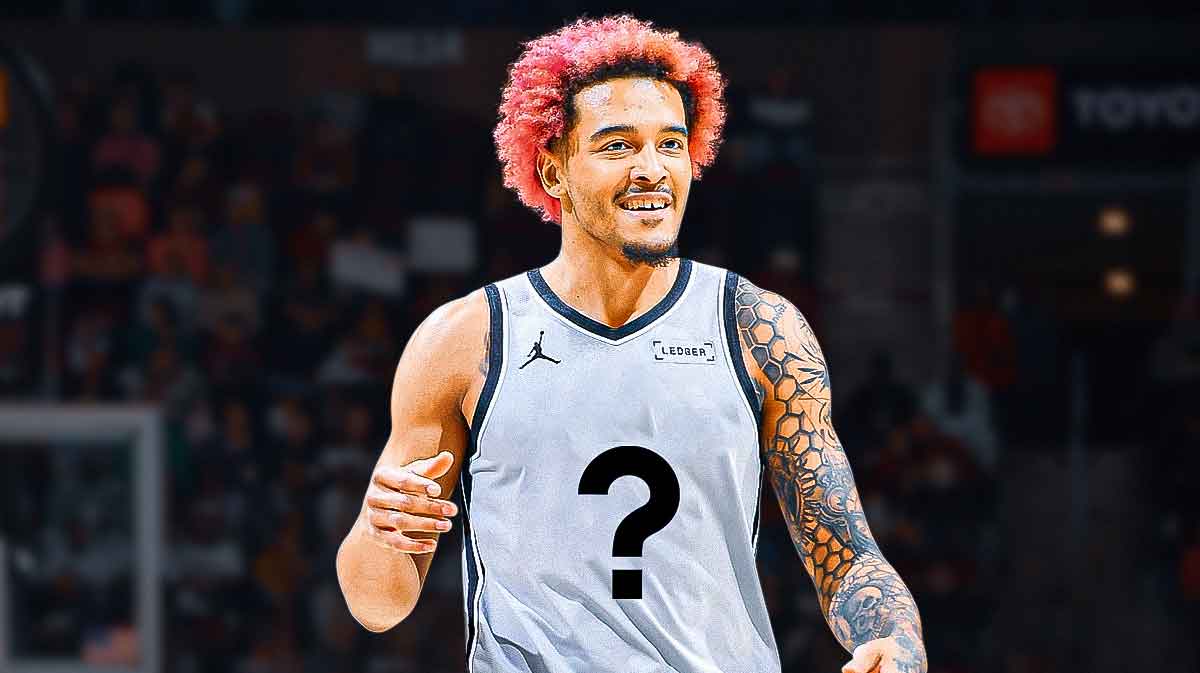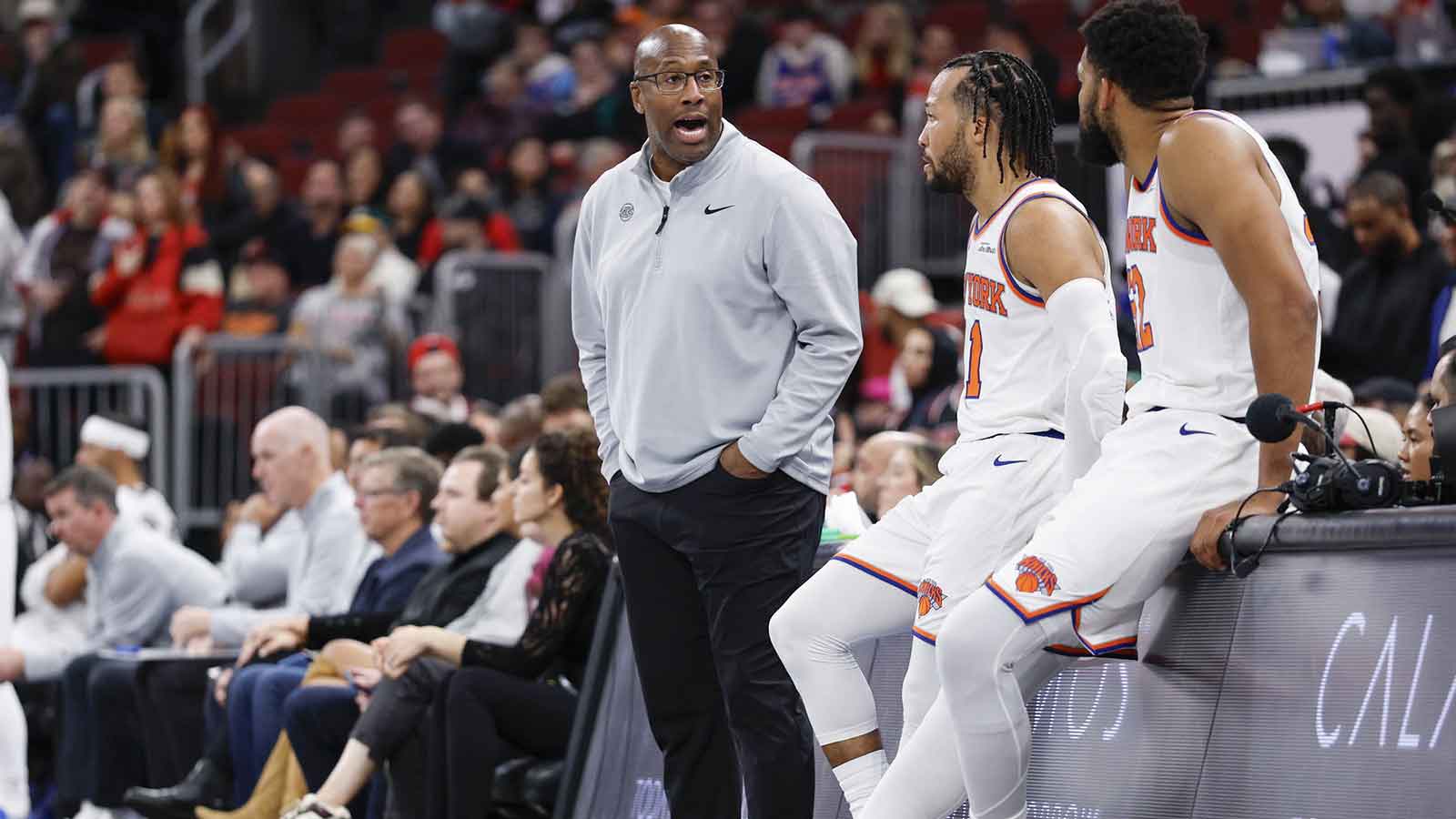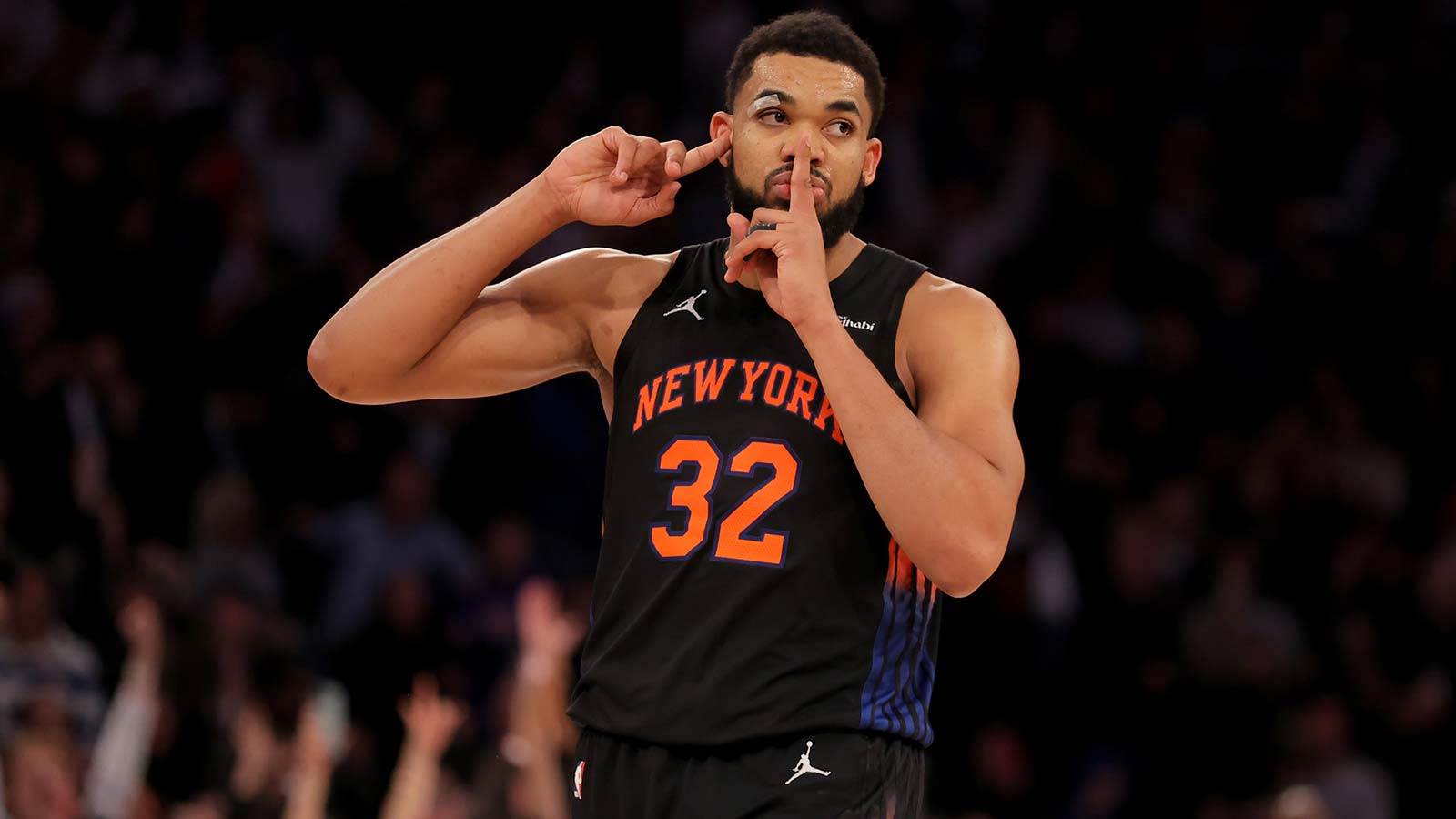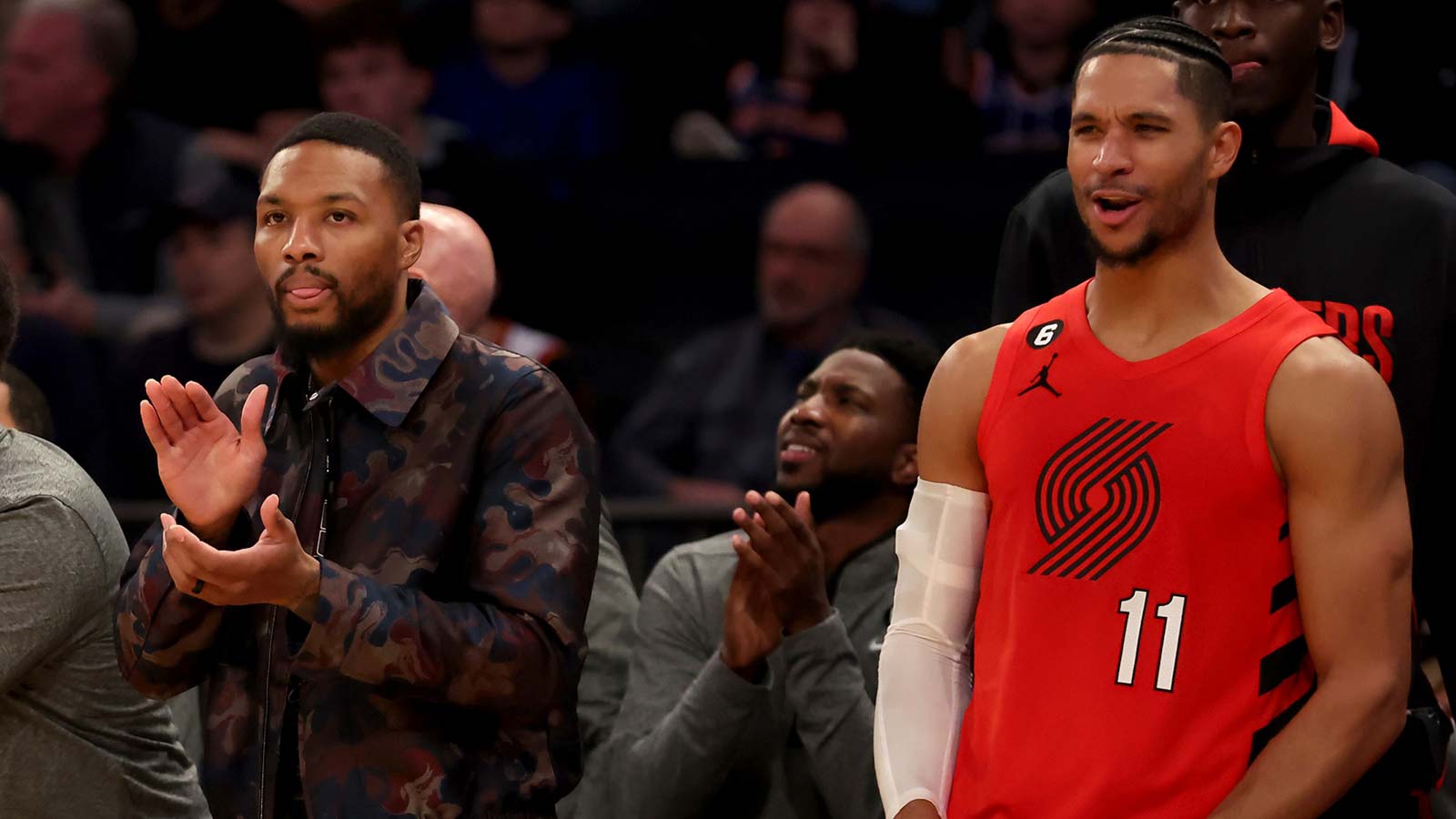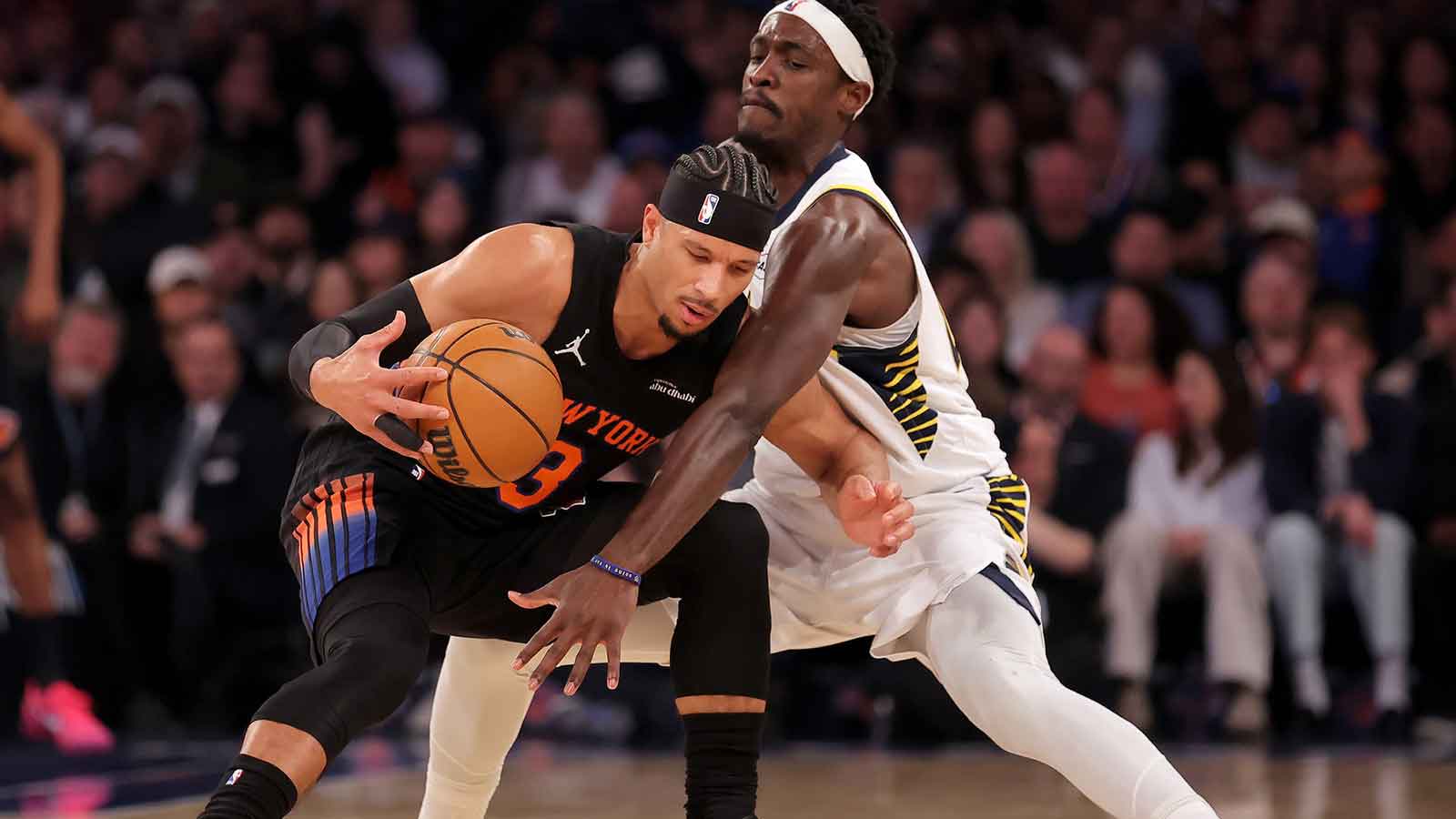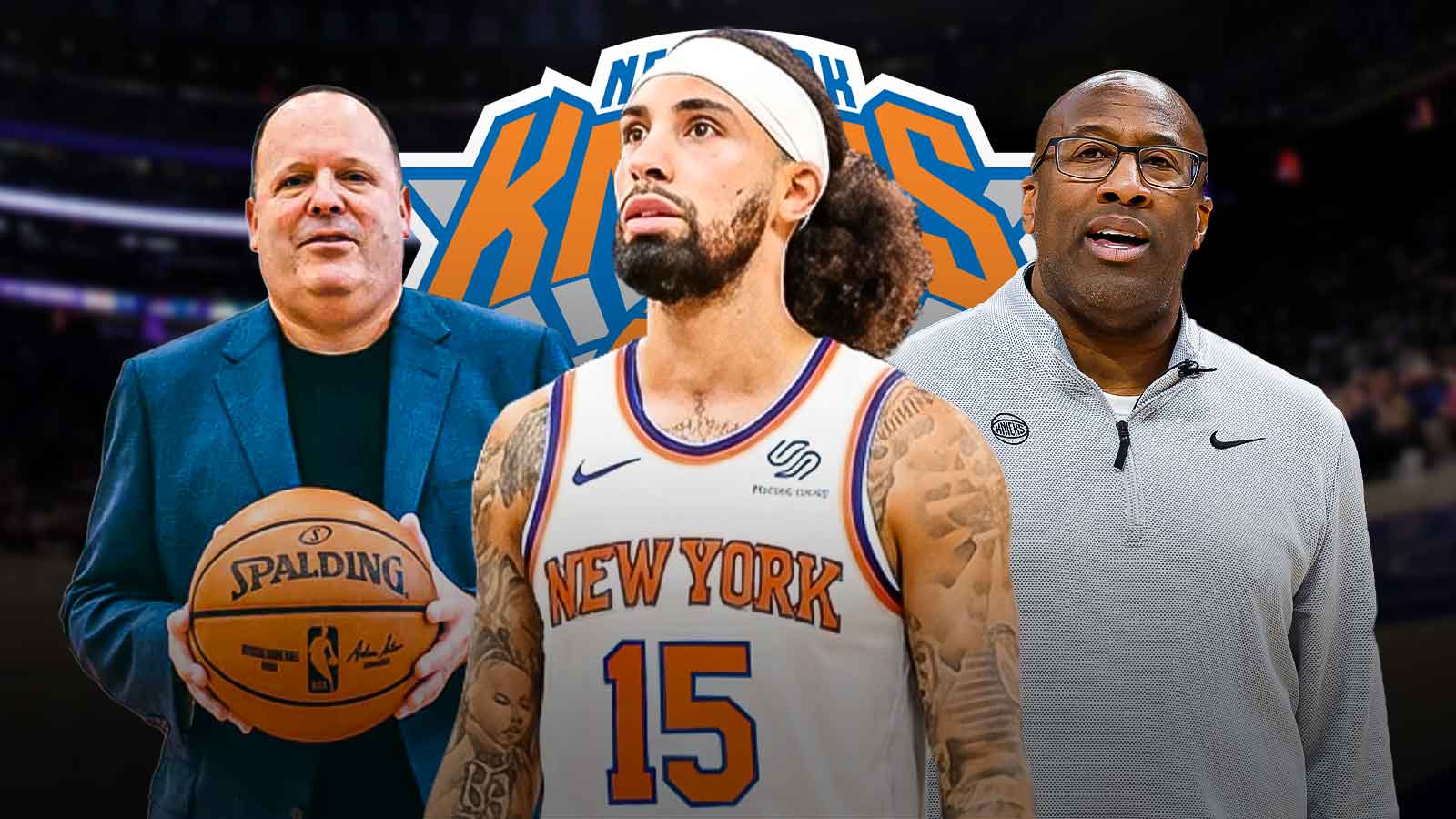In Game 2, the Cavs crushed—punked, demolished, cowed, buffaloed—the Knicks. The Knicks lost 90-107 and even that lopsided score flatters them—the Knicks never got within 17 points of the Cavs in the second half and were down by 27 with just under four minutes left. It was a comprehensive, resounding victory; Darius Garland scored 26 points in the first half (32 overall); Donovan Mitchell set a career high with 13 assists; the duo of Jalen Brunson and Julius Randle combined to shoot a putrid 13-37 from the floor. But even if it's easy and tempting to get fatalistic about New York's chances in the playoffs, the Knicks split the first two games of the series and wrested homecourt advantage away from the Cavs. Here are the three adjustments the Knicks must make to win Game 3 and retake control of the series.
3. Handle pressure better.
Traditionally a conservative defensive team, the Cavs launched an all-out assault on the Knicks' ball-handlers to tie up the series. Whereas Jarrett Allen and Evan Mobley made their bones all season as stalwart drop coverage practitioners, they frequently trebucheted themselves at Jalen Brunson when he came off a screen in Game 2. The logic is simple and pretty airtight. If given too much time and space, Brunson will dive into his ludicrously capacious bag to fillet his defender one on one, but he's too small to peer over the top of a double team and punish it with an incisive pass. Accordingly, the Cavs defanged Brunson's pick and roll game, blitzing him on nearly a third of his 31 pick and rolls and coercing him into non-threatening side-to-side passes.
While blitzes make it nearly impossible for Brunson to score on these possessions, they also open up vulnerabilities on the back-end. If two guys are guarding Brunson, then that leaves just three Cavs to handle the remaining four Knicks. Accordingly, the Knicks can capitalize on these opportunities on the short roll—Mitchell Robinson can't handle this, but Julius Randle, Isaiah Hartenstein, Josh Hart and RJ Barrett are all comfortable making quick decisions on the move.
Similarly, the Knicks could stress the Cavs defense simply by putting more shooting on the floor at any given time and forcing the remaining three Cavs to cover more space. In this sense, the Knicks should never have more than two of Hart, Barrett, Robinson and Hartenstein on the court at any time.
2. Solidify their rotation.
Beyond any schematic wrinkle, the Knicks played bad because nearly all of their players were bad. Outside of Brunson and Randle, Hart has been the only reliable member of the Knicks so far in the playoffs, but but he's nursing an ankle injury. Despite leaning on their bench all season, the Knicks' depth has seemingly disappeared. Immanuel Quickley, the rightful Sixth Man of the Year, is visibly rattled and out of sorts—his shot vanished across the first two games, only resurfacing at the very end of garbage time. Quentin Grimes has been invisible; he's played 49 minutes so far and hasn't done a single notable thing in the run of play. RJ Barrett plays with the confidence of Shabazz Muhammad and the skill of, uh well, Shabazz Muhammad and probably shouldn't get minutes on a serious team.
The roster's collective struggles make it difficult to find a surefire solution, but head coach Tom Thibodeau needs to try, whether that means syncing up more of Brunson's and Quickley's minutes to relieve some of Quickley's playmaking burden or splitting up Hart and Barrett more to gin up more spacing.
1. Create mismatches for Jalen Brunson and Julius Randle.
The Knicks aren't going to last long in the playoffs without Brunson and Randle playing like superstars. Unfortunately, the Cavs have the cocktail of depth and talent to make the two look ordinary. After Brunson and Randle were able to carry the Knicks to a Game 1 win on the back of some bravura shot-making, the offense on the whole hasn't been break free from the grasp of Cleveland's long, tentacular defense in the playoffs. Against the Cavs, though, the Knicks can't simply ask Randle and Brunson to create points whole-cloth. Defensive Player of the Year finalist Evan Mobley is too long and good for Randle to fruitfully iso against (he went just 4-11 against Mobley in Game 2) while Caris Levert forced Brunson into 1-9 shooting when matched up with him, leveraging his size and quirky, halting movement style to stymie Brunson.
As such, the Knicks need to find ways to avoid the Cavs' best defenders and pick on their weaker ones like Mitchell and Garland. Instead of bringing a center up as the screener, the Knicks must lean more on their wings so Garland and Mitchell can't have the luxury of guarding a stationary shooter. Identifying and then picking on the other team's worst defender is hardly a novel strategy, but it's an especially necessary one here. Mitchell and Garland so obviously can't guard Brunson and Randle whereas Levert and Mobley so obviously can.
The Knicks' third-ranked offense was never as artful as Sacramento's or as talented as Philly's, but they mustered up an elite unit because the muscled-up iso stylings of Jalen Brunson and Julius Randle reliably created advantages. Even if the Cavs are the best defense in the league, these advantages still exist; it's just a matter of figuring out new ways of accessing them.

